20+ Years Experience
Specialist Cocaine Rehab

Enquire Today For A Free No Obligation Quote
Are you concerned that a loved one may be struggling with cocaine abuse?
Recognising the signs and symptoms of cocaine addiction is crucial to providing the necessary support and intervention.
In this blog post, we will dive into the physical, behavioural, and mental effects of cocaine use, as well as the importance of early intervention and support to prevent accidental overdose and mental illness.
If you would like to get in touch with our admissions team to find out about cocaine rehab opportunities, please complete our contact form today.
Cocaine abuse has a wide range of physical indicators that can be easily observed. Some of the most common signs include dilated pupils, runny nose, and nosebleeds.
Additionally, long-term cocaine abuse can result in disfiguration, which may require expensive and invasive surgery to correct.
Furthermore, it is worth noting that 40,3% of emergency department visits related to illicit drug use or substance abuse, or misuse are attributed to crack cocaine abuse.
With approximately 14% having used cocaine in their lifetime, it is vital to recognise these physical indicators and provide support to those affected.
People with a cocaine addiction can experience intense cravings which the majority of the time can have negative consequences and can result in the person starting to have financial problems just to fuel their cocaine problem.
Snorting cocaine can cause significant damage to the nasal lining and blood vessels, resulting in symptoms such as nasal congestion, runny nose, nosebleeds, loss of sense of smell, and chronic sinus infections.
In extreme cases, long-term cocaine misuse may cause a hole in the nasal septum or collapse of the nasal bridge, requiring surgical intervention.
Understanding these nasal problems from snorting cocaine can help identify and address cocaine use promptly.
Cocaine use has been linked to a variety of cardiovascular issues, including chest pain, ischaemia, acute coronary syndrome, high blood pressure, systolic and diastolic dysfunction, arrhythmias, atherosclerosis, heart attacks, and potentially coronary artery disease especially if they are smoking cocaine as well as snorting.
Furthermore, abusing cocaine use can result in severe physical symptoms such as cardiovascular complications, including heart attacks, stroke, and even mortality. Recognising these cardiovascular issues is vital to intervening and supporting someone with cocaine and drug abuse.
Cocaine abuse can result in erratic changes in behaviour, ranging from exuberant and cheerful to hostile and belligerent. It is not uncommon for those using cocaine to experience increased energy, talkativeness, excitability, and reckless activities after drug use.
Due to the intimate nature of their relationship, loved ones are more apt to discern changes in behaviour and mood, making it crucial for them to monitor and address these behavioural changes when necessary.
If you feel like someone close to you has been showing signs of cocaine addiction symptoms get in touch with a member of our team today.
Cocaine use can result in social isolation and avoidance of social activities, as well as paranoid behaviour and disregard for social norms. This decrease in participation in social activities can significantly impact the user’s relationships and overall well-being.
Long-term crack cocaine use can also result in impaired decision-making, communication difficulties, physical and psychological dependence and difficulty in establishing and maintaining relationships.
Recognising these signs of social isolation can aid in providing support for those struggling with cocaine addiction.
Apart from social isolation, cocaine addiction can also result in various reckless and risky behaviours. These may include substantial financial losses due to the expenditure of large amounts of money on the drug, failure to pay bills, they may try to steal money from family members to obtain loans to finance the drug habit.
Furthermore, legal issues such as illegal drug possession, drug trafficking, and other criminal activities can arise.
Finally, potentially hazardous sexual behaviours, such as engaging in unprotected sex, having multiple partners, and trading sex for money or drugs, may also occur as a result of cocaine abuse. Recognising and addressing these risky behaviours is crucial in supporting someone with a crack cocaine addiction.
Cocaine use not only affects an individual’s physical health and behaviour but also their mental and emotional well-being. The drug produces a brief euphoria, permanent neurological modifications, emotional fluctuations, and psychiatric disorders.
Short-term effects of cocaine use may include increased levels of talkativeness, excitability, decreased inhibitions, heightened confidence, and reduced appetite or need for sleep. Meanwhile, long-term cocaine use can lead to paranoia, anxiety, anger, and hallucinations.
Understanding these mental and emotional effects is essential in providing support for those struggling with cocaine addiction.
Cocaine use can result in both short-term and long-term mood swings.
Short-term mood swings can be evidenced by sudden shifts in energy levels, emotions, and behaviour. On the other hand, long-term mood swings can manifest as depression, anxiety, irritability, and difficulty concentrating.
This is due to the way that cocaine acts on the brain increasing levels of dopamine, but once that wears away that’s when the mood changes start to happen which is something that cannot be controlled.
Recognising these mood swings in someone using cocaine can help provide the necessary support and intervention to address their cocaine abuse symptoms.
Research has demonstrated that chronic cocaine use can lead to impairments in attention, working memory, declarative memory, and executive function.
These cognitive impairments can result in difficulties focusing, paying attention, recalling instructions, recent events, and details, as well as recalling facts, remembering names, and recognising faces.
It can also lead to mental health issues such as anxiety, depression and even hallucinations.
Additionally, cocaine use can result in impaired decision-making, difficulty with problem-solving, and difficulty in planning. Recognising these cognitive impairments can aid in providing support for those struggling with cocaine addiction.
Cocaine cravings are a critical aspect of drug addiction, resulting from alterations in the brain’s chemical composition and persisting for several weeks following the attainment of sobriety. Emotional withdrawal can cause numerous symptoms.
These include drowsiness and fatigue, increased appetite, depression, irritability, mood swings, nightmares, and drug cravings.
Physical cocaine withdrawal symptoms may not be present, but the emotional toll can be just as difficult to manage and should not be taken lightly. Understanding the science behind cocaine cravings and how to manage physical withdrawal symptoms can greatly benefit those battling cocaine addiction.
Cocaine cravings involve the brain’s reward system and the release of dopamine. Chronic cocaine abuse can lead to addiction through the alteration of brain circuits and the associated molecular/neurochemical changes, such as an increase in dopamine levels.
Understanding the biological mechanisms underlying cocaine cravings can help provide the necessary support and intervention for those struggling with cocaine addiction.
Managing cocaine withdrawal symptoms is essential for a successful recovery. Addressing cocaine withdrawal symptoms can be accomplished through obtaining professional assistance, taking medication, and attending support groups.
Seeking professional help when managing cocaine withdrawal symptoms is essential, as it can provide the individual with the requisite support and guidance to facilitate them through the process.
Furthermore, medication can be beneficial in diminishing the intensity of the physical symptoms of withdrawal, while support groups can provide emotional backing and aid the individual to remain motivated and on track.
Early intervention and support are crucial in helping someone with cocaine addiction. Addressing the issue promptly increases the likelihood of a successful recovery. Loved ones play a vital role in this process, as they are often the first to notice changes in behaviour, mood, and physical appearance.
Recognising the signs of cocaine or substance use disorder or abuse, such as increased energy or activity, being overly talkative, exhibiting sexualised behaviour, becoming excitable, exhibiting erratic behaviour, engaging in reckless activities, displaying irrational behaviour, and even exhibiting violent behaviour, can be critical to getting someone on the appropriate course toward recovery.
When approaching a loved one about cocaine addiction, it is important to be informed on the subject, select an appropriate time and location for the discussion, allow ample time for the conversation, and use “I” statements to express your worries.
Ensuring that your loved one understands your desire to assist in a secure and supportive atmosphere is essential.
After voicing your worries, it is crucial to hear their point of view, provide assistance, and offer resources for treatment.
In the event of an emergency involving someone with cocaine addiction, it may be necessary to contact emergency services.
There are numerous resources available for locating professional medical professionals for cocaine addiction, such as rehab centres and treatment programs.
Obtaining professional assistance for cocaine addiction may be necessary to attain recovery.
You can begin your search for professional help by consulting your family physician, contacting your insurance company to identify treatments that are financially viable, or speaking to an admissions coordinator at a rehabilitation centre.
Combining cocaine with other substances increases the risk of cocaine overdose and can lead to dangerous interactions.
Polydrug use, or the use of cocaine in combination with other drugs or alcohol, is highly addictive and can result in unpredictable and hazardous effects on the body and mind.
Recognising the dangers of combining cocaine with other substances is vital in providing support for those struggling with cocaine addiction.
You can find out more about the dangers of cocaine by speaking to our team.
Polydrug use refers to the concurrent consumption of two or more drugs.
The risk factors associated with polydrug use can be severe, as the combination of drugs can lead to unpredictable reactions in the body and mind, including potentially fatal outcomes and an increased likelihood of developing an addiction to street drugs.
Understanding the dangers of polydrug use is crucial in recognising and addressing cocaine addiction.
The combination of cocaine and alcohol can be hazardous, as it can cause the formation of a toxic metabolite called cocaethylene, enhance the likelihood of heart and liver damage, and potentially lead to drug abuse.
Mixing cocaine with alcohol can also lead to an increased heart rate, increased blood pressure, and an increased risk of cocaine overdose.
Recognising the potential risks and consequences of combining cocaine with alcohol is important in providing support for those struggling with cocaine addiction to seek treatment today.
Inpatient and outpatient rehab programs are available to provide medical and psychological care for cocaine addiction.
Both treatment options can be beneficial for those struggling with cocaine addiction, offering various levels of support and care depending on the individual’s needs and circumstances.
Understanding the different treatment options and their benefits can help those affected by cocaine addiction make an informed decision on the most suitable course of action for their recovery.
Inpatient rehab provides a structured atmosphere for individuals to concentrate solely on their rehabilitation, offering 24-hour medical and psychological care in a residential setting.
Inpatient rehab typically includes individual and group therapy, medication management, and holistic treatments such as yoga and meditation, providing access to medical and mental health professionals who can assist individuals in managing their addiction.
The advantages of inpatient rehab compared to other treatments include a secure and regulated atmosphere, access to medical and mental health specialists, and assistance in developing healthy coping mechanisms and approaches to address their addiction.
Aftercare following inpatient rehab is essential for individuals to maintain their sobriety and avoid relapse.
Outpatient treatment for cocaine addiction may enable individuals to stay employed or attend school while receiving treatment, providing medical and psychological care on a part-time basis. Outpatient treatment may include individual counselling, group therapy, medication-assisted treatment, and 12-step programs.
The benefits of outpatient treatment include the ability to tailor the schedule to individual needs, a cost-effective approach, and a gradual reintroduction to daily life.
However, the drawbacks include a lack of structure and support, as well as the potential for relapse.
In conclusion, recognising the cocaine addiction symptoms is crucial in providing support and intervention for those affected.
From understanding the physical, behavioural, and mental effects of cocaine use to the importance of early intervention and support, this blog post has provided valuable insights into the world of cocaine addiction.
By being informed and aware of the signs of cocaine addiction, the dangers, treatments, and the support available, we can all play a part in helping those struggling with cocaine addiction on their journey towards recovery and a healthier, happier life.
Drug abuse can be a very hard thing to overcome, and physical symptoms of cocaine addiction can sometimes be hard to spot if someone in your personal life is abusing cocaine we can offer a free addiction assessment so you or a loved one can regain control of your life.
If you want to find out more about addiction treatment, we can offer assistance. Have a look at the list below for more information:








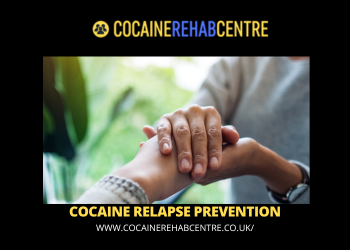
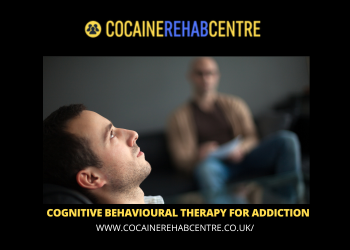





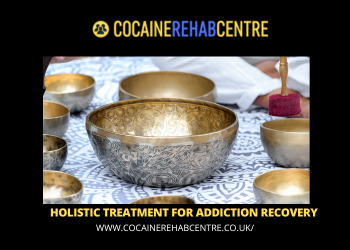




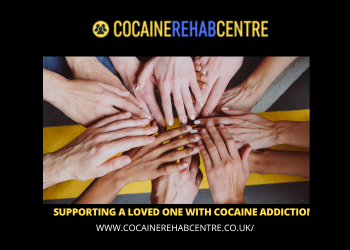

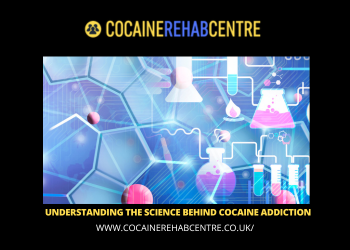


We Aim To Reply To All Enquiries With-in 24-Hours